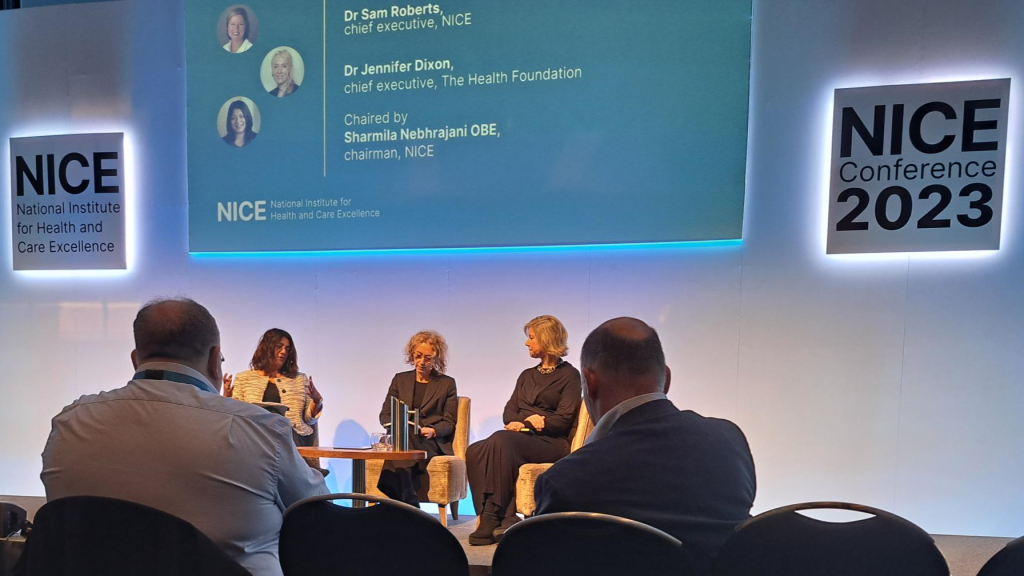In 2022/23, the UK’s National Institute for Health and Care Excellence (NICE) had a 17% faster turnaround for medicine evaluations, as per chairman Sharmila Nebharjani.
Nebharjani highlighted several plans to improve the efficacy of the medicine evaluation process, including ongoing efforts to accelerate the process, while speaking at the 2023 NICE Conference in Manchester, which took place on 7 November.
Furthermore, NICE completed 800 appraisals in the 2022/23 period, said Jennifer Prescott, NICE programme director – health technology assessment process and operations. Nebharjani stated the agency has made significant strides in improving the efficacy of its evaluation protocols. To highlight that, she cited the rapid evaluation of Roche’s Columvi (glofitamab) as an example. The diffuse large B-cell lymphoma (DLBCL) drug was recommended by NICE on the same day it received marketing approval from the UK Medicines and Healthcare Products Regulatory Agency (MHRA), on 17 October.
The use of real-world data to supplement a medicine evaluation application has been increasing, as per NICE chief executive Dr Sam Roberts, who added that “one in six medicine evaluations use real-world data”. While there has been an uptake in the use of real-world data, artificial intelligence (AI)-generated evidence is currently not accepted by NICE. However, Roberts did say that creating guidelines on AI-generated evidence is a focus area for the agency for 2024.
Steps to improve efficiency
Roberts acknowledged that NICE guidelines and protocols are complex to navigate. She added that the agency has launched a refreshed support service for the life sciences sector, NICE Advice, to offer a ‘concierge’ service to the pharmaceutical and healthtech companies.
As part of the plan to update medicine evaluations, NICE has set up a Proportionate Approach to Technology Appraisal (PATT) programme, which aims to decrease the time for appraisals of new medicines.
NICE has also incorporated an international approval recognition procedure, the most prominent of which is Project Orbis. It is a collaborative effort by international regulatory bodies and aims to conduct marketing authorisations of promising drugs using shared resources and expertise.









